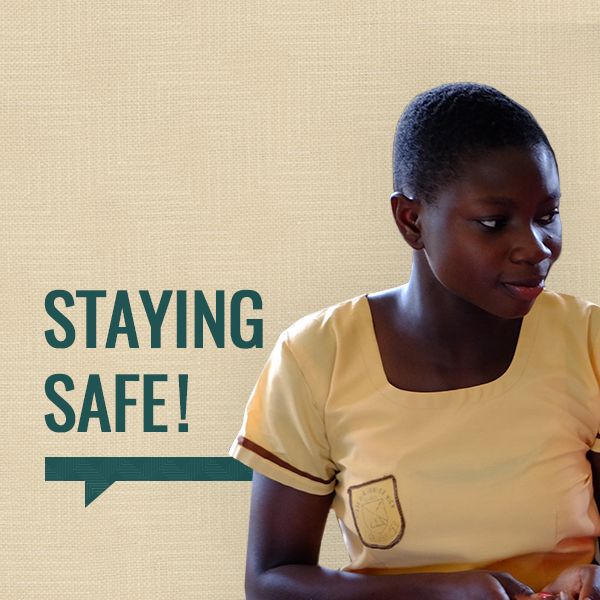Let Women Lead: Staying Safe!

With high-stakes election seasons in four of WomenStrong’s five countries, students from all over the world share their thoughts about women leaders and women’s leadership in general. This week students from WomenStrong’s Empowerment Clubs in Kenya and an African Leadership Academy girl from Senegal share about inspiring women leaders in the politics in their countries.
Victoria Eshun, Ghana
Victoria is a 14-year-old student at Krobo District Authority Junior High School, outside of Kumasi, Ghana.
There are a lot of things that need to be changed in our country or culture to create more opportunities for leadership for women and girls. First and foremost is to avoid discouraging women to stand for positions of power. In some cultures and societies, there are a lot of women who are well-qualified for positions, but because of discouragement from families, friends, and society as a whole, they step back. Men are the head, and women are the neck. Without the help of the neck, how can the head see something at the back or behind? The neck helps the head, and the head helps the neck. So what a man can do, a woman can do much better.
Furthermore, girls need to learn to avoid early marriage, which deprives them from being educated. In some societies and cultures, girls are forced into marriage before the age of 18. Despite laws against it, the practice remains widespread. In some communities, girls are married off at their early age, for instance, at 13 years old, just to ease hardship on the family. Due to this, they are not educated and have no knowledge about leadership. There is a saying that you educate a man or boy, you simply educate an individual, but when you educate a woman or girl, you educate a whole nation. Therefore, girls should not be given out to marriage so early, but should be educated.
Lastly, tribalism. Tribalism is a popular cultural term that represents a way of thinking and behaving in which people are loyal to their own tribe or social group. In some tribes, their belief is that women are not to be ahead of men. In some tribes, also women are not allowed to take part in family discussions, or, if they are allowed to take part, they are not allowed to speak. Some churches also deny women and girls the opportunity to speak. This is how tribalism is overruling reason, so it, too, must be changed.
Rosemary Nkansah, Ghana
Rosemary is a 13-year-old student in Grade 8 at Krobo District Authority Junior High School, outside of Kumasi, Ghana.
Women and girls are unique creatures. This is because of our body, which makes us unique, and this is why we celebrate women’s day all over the world. We are unique creatures because our parents are educating us to find success and improvement in our lives. We have to abolish or change some of our culture, as follows: female circumcision, the “Trokosi system,” and widowhood rites.
Firstly, female genital mutilation or female circumcision is an operation that involves the cutting off of all or part of a woman’s or a girl’s clitoris. It leads to infertility. It is often carried out by untrained doctors who do not sterilize their instruments. Thus, victims of female genital mutilation can easily contract HIV/ AIDS and other infections that may render them infertile and may lead to profuse bleeding and even to death.
Secondly, the “Trokosi system” means a girl is given as a slave to god. The Trokosi System violates Ghana’s 1992 Constitution by confining victims to lives of cruel, sexual servitude in shrines far from home, which disregards and violates the rights of girls and women.
Thirdly, widowhood rites are rites performed during and after the death of a spouse. This set of practices needs to be abolished because it humiliates womanhood and treats women badly, such as by shaving their heads, caning them, and forcing them to go barefoot. Victims of widowhood rites are sometimes made to live without food for days and to swallow the saliva of the corpse, leading to such health problems as stomach ulcers and tuberculosis.
Dhan Foundation’s Adolescent Girls’ Groups, Madurai City, India
A few participants in an Adolescent Girls’ Group in Madurai, India, run by WomenStrong Consortium member Dhan Foundation, offered some further thoughts.
Safety is a big issue. Parents will not allow girls to participate because they think it is dangerous. There are a lot of hooligans and coarse language and stampedes and behavior that they think is not good for girls. They are trying to protect us. But this is not good. It needs to change. We need more women leaders to help other women.

